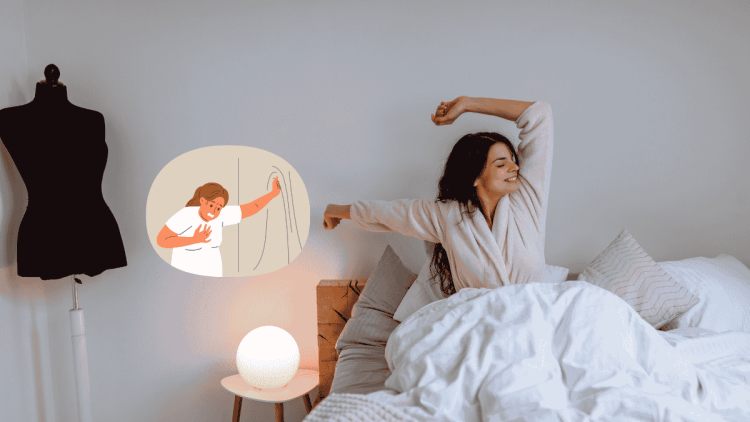Introduction
We often think of health transformation as something that requires big leaps: joining a gym, starting a strict diet, committing to a complete lifestyle overhaul. But what if the real key to lasting change isn’t massive action—but small, consistent habits practiced daily?
Enter the power of micro-habits—tiny, easy-to-do behaviors that are so simple they feel almost insignificant. Drinking a glass of water first thing in the morning. Taking the stairs instead of the elevator. Stretching for five minutes. Going to bed 15 minutes earlier.
These micro-actions, when done regularly, can lead to meaningful long-term improvements in your physical health. Over time, they build momentum, reshape identity, and reprogram your daily routine without overwhelming your life.
This article explores how these small daily habits can create a cumulative impact on your body, and why consistency, not intensity, is the true game-changer.
What Are Micro-Habits?
Micro-habits are deliberately small behaviors designed to be simple and achievable. Unlike big goals, they:
- Require minimal willpower or motivation
- Can be done in less than 2–5 minutes
- Are easy to repeat, even on busy or low-energy days
- Create a sense of success, which reinforces behavior
Examples of physical health-related micro-habits include:
- Doing 10 squats while brushing your teeth
- Filling a water bottle each morning
- Standing up for 1 minute every 30 minutes during work
- Doing one yoga pose before bed
- Taking 5 deep breaths before eating
While each action may seem minor, the real power lies in repetition and compounding.
How Micro-Habits Affect the Body Over Time
1. Improved Mobility and Joint Health
Simple daily movements—like stretching for 3 minutes or doing desk exercises—can enhance flexibility, posture, and joint function. Long hours of sitting gradually erode mobility, but micro-movements prevent stiffness and promote long-term musculoskeletal health.
Micro-habit example:
Stretch your neck, shoulders, and hips every morning or after sitting for 90 minutes.
2. Enhanced Metabolic Function
Drinking water consistently, standing frequently, and taking short walks can:
- Improve blood circulation
- Stabilize blood sugar levels
- Encourage fat metabolism
- Reduce insulin resistance
Even low-intensity, regular movement has been shown to improve insulin sensitivity and energy levels.
Micro-habit example:
Take a 2-minute walk after meals to help regulate glucose.
3. Better Sleep and Recovery
Small habits—like dimming lights in the evening, avoiding screens 30 minutes before bed, or going to bed at the same time—help regulate your circadian rhythm and improve sleep quality.
Sleep is when your body:
- Repairs tissues
- Balances hormones
- Strengthens the immune system
Micro-habit example:
Set a nightly reminder to start winding down at the same time each evening.
4. Lower Stress and Blood Pressure
Mindful breathing, body scans, or simply taking 60 seconds to pause during a hectic day helps activate the parasympathetic nervous system. This reduces cortisol levels, slows heart rate, and enhances emotional regulation.
Micro-habit example:
Breathe deeply for 60 seconds before checking email or starting a meeting.
5. Stronger Cardiovascular Health
Frequent light movement—even if it’s just standing up or pacing during calls—has a cumulative effect on heart health. Regular micro-activity throughout the day can:
- Lower resting heart rate
- Improve blood vessel elasticity
- Reduce risk of cardiovascular disease
Micro-habit example:
Take the stairs instead of the elevator once a day.
The Psychology Behind Why Micro-Habits Work
1. They Bypass Resistance
Big changes often trigger resistance: “I’m too tired,” “I don’t have time,” or “I’ll start next week.” Micro-habits are so small they slip under the radar of your brain’s resistance systems.
2. They Build Identity
When you do something consistently—even small—you begin to see yourself differently. A person who drinks water each morning becomes someone who cares for their hydration. Identity change is more sustainable than willpower.
3. They Create Momentum
Small wins build confidence. One tiny success leads to another, and before long, small habits stack into bigger routines. This is the foundation of habit compounding.
Real-Life Examples of Health Transformed by Micro-Habits
Case 1: Desk Worker to Active Professional
A man working 10+ hours at a desk began taking a 2-minute walk every hour. After 3 months, he noticed less back pain, better focus, and more energy. Eventually, he extended those walks and now completes 6,000 steps during work hours.
Case 2: From Chronic Dehydration to Balanced Energy
A woman who always forgot to hydrate began setting a phone reminder to drink one glass of water each morning. Within a month, she doubled her water intake and reported fewer headaches and better skin.
Case 3: Stress-Eating Reduced With Mindful Pauses
A professional with high anxiety added the habit of 3 deep breaths before each meal. It helped reduce emotional eating and improved digestion over time.

How to Start Using Micro-Habits for Better Health
1. Start Tiny
Begin with an action that takes less than 1 minute. The goal is to make it feel so easy you can’t say no.
2. Attach to an Existing Routine
Link your micro-habit to something you already do:
- After brushing teeth → do calf stretches
- Before drinking coffee → drink one glass of water
- After turning off your alarm → breathe deeply for 10 seconds
3. Track It Visually
Use a calendar, habit tracker, or even a sticky note. Seeing your progress reinforces commitment.
4. Be Flexible, Not Perfect
Missing one day doesn’t matter. Missing three days in a row breaks momentum. Focus on consistency, not streaks.
5. Let It Grow Naturally
When the habit becomes automatic, you can choose to build on it. A 2-minute stretch may become a 10-minute yoga flow. But don’t rush it—consistency > intensity.
Conclusion
True transformation doesn’t happen in a day—it happens daily.
Micro-habits may seem small, but their impact over weeks, months, and years is massive. They rewire your brain, reshape your routine, and redefine your relationship with health—quietly, sustainably, and powerfully.
You don’t need to overhaul your life to feel better. You just need to start small, stay steady, and trust the process.
The body responds to what you do most consistently, not what you do occasionally. And when those small actions are positive, your health naturally shifts—in energy, mobility, focus, and strength.
So, the next time you wonder whether 30 seconds of stretching or one glass of water matters, remember this: tiny habits build strong bodies.

















































